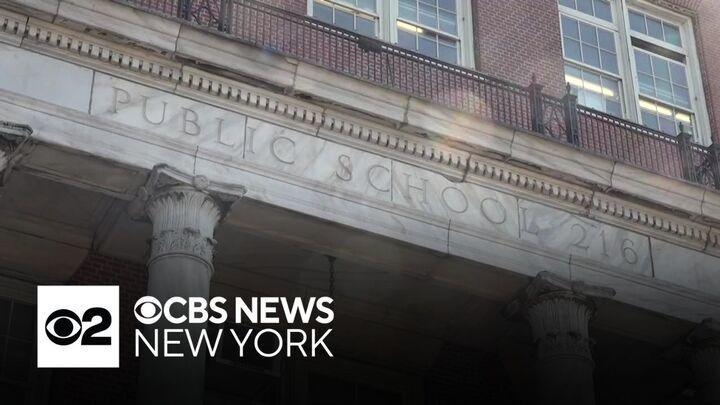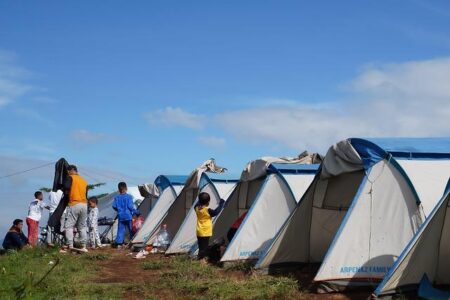Addressing the Growing Crisis in Brooklyn’s After-School Program Funding
Brooklyn Parents Face Challenges Amid Unstable After-School Program Financing
As Brooklyn’s academic year begins, numerous families are encountering a pressing issue: the erratic and insufficient funding of after-school programs. These programs serve as vital pillars, offering children not only academic assistance but also a secure and stimulating environment after school hours. Unfortunately, inconsistent financial backing has compelled many centers to reduce their operating hours or limit the number of children they can serve, leaving parents scrambling for alternatives. This instability disproportionately impacts low-income households, who often lack the means to seek private childcare, underscoring systemic inequities in access to essential youth services.
Local advocates emphasize the necessity for a dependable funding framework that guarantees continuous availability of quality after-school care. Currently, Brooklyn’s after-school programs rely on a fragmented mix of municipal grants, state funds, private contributions, and parent fees—each with its own set of challenges:
| Funding Source | Obstacles |
|---|---|
| Municipal Grants | Often subject to delays and shifting city priorities |
| State Allocations | Highly competitive with complex application requirements |
| Philanthropic Donations | Irregular and insufficient for sustainable operations |
| Parent Contributions | Frequently unaffordable despite subsidy programs |
- Parents stress: Consistent after-school care is essential, not optional.
- Program providers advocate: Stable funding to avoid interruptions that hinder child development.
- City officials recognize: The urgent need for coordinated funding strategies to close existing gaps.
Consequences of Funding Deficits on Childcare and Academic Enrichment
The shortfall in after-school program funding is translating into tangible hardships for Brooklyn families. Many programs that once provided affordable, high-quality care are now forced to curtail hours or reduce services, leaving children without structured supervision during critical after-school hours. This reduction also limits access to academic support and extracurricular activities that foster social skills and intellectual growth.
Parents have reported several immediate impacts:
- Greater dependence on informal caregiving arrangements, which may lack consistency and safety.
- Decreased availability of tutoring and homework assistance, negatively affecting academic achievement.
- Increased stress levels among working parents balancing demanding schedules without reliable childcare.
| Funding Issue | Impact on Children | Parental Concerns |
|---|---|---|
| Shortened Program Hours | Reduced supervision and structure | Child safety and well-being |
| Cutbacks in Academic Support | Lower homework completion rates | Widening educational gaps |
| Fewer Enrichment Opportunities | Limited development of new skills | Preparation for future success |
Without prompt and increased investment, these funding deficiencies risk exacerbating educational disparities, especially in economically disadvantaged neighborhoods. For many Brooklyn families, after-school programs are indispensable lifelines that ensure children’s safety and foster academic progress during critical hours.
Unified Calls from Community Leaders for Sustainable Funding Solutions
Community advocates and local leaders in Brooklyn are rallying for a comprehensive and enduring financial commitment to after-school programs. They argue that temporary grants and sporadic funding only provide short-term relief, failing to address the systemic underfunding that threatens program continuity and expansion. Their vision includes not only preserving existing services but also broadening access to underserved areas.
Key priorities outlined by these leaders include:
- Boosting city and state budget allocations specifically earmarked for after-school initiatives.
- Establishing a centralized funding pool to ensure equitable distribution across Brooklyn’s diverse communities.
- Implementing rigorous accountability systems to monitor how funds impact program quality and student outcomes.
- Fostering collaboration among schools, nonprofits, and government agencies to optimize resource use.
| Advocate Role | Primary Concern | Recommended Action |
|---|---|---|
| Parent Representative | Unpredictable program schedules | Flexible funding to extend service hours |
| Nonprofit Executive | Limited community outreach | Targeted grants for marketing and enrollment efforts |
| City Council Member | Unequal resource allocation | Data-driven funding distribution models |
Innovative Approaches to Closing the After-School Funding Divide
To address the persistent funding challenges, Brooklyn’s education stakeholders are proposing a multi-pronged strategy designed to enhance financial stability and program accessibility. One promising avenue is expanding partnerships between public entities and private corporations, which can infuse much-needed capital into local after-school initiatives. Additionally, simplifying grant application procedures can empower smaller organizations to secure funding more effectively.
Recommended tactics include:
- Introducing sliding-scale fee structures based on household income to make programs more affordable without sacrificing quality.
- Launching volunteer recruitment drives to supplement staffing shortages and reduce operational expenses.
- Advocating for dedicated municipal budget lines exclusively for after-school programming.
- Utilizing hybrid learning models that combine in-person and virtual activities to broaden reach and lower costs.
| Proposed Solution | Expected Benefit | Estimated Implementation Period |
|---|---|---|
| Public-Private Partnerships | Increase funding by approximately 30% | 6 to 12 months |
| Sliding-Scale Fee Models | Boost enrollment by 20% | 3 to 6 months |
| Volunteer Engagement Programs | Cut operational costs by up to 15% | Immediate |
| Hybrid Learning Platforms | Expand program access citywide | 9 to 12 months |
Conclusion: Prioritizing After-School Programs for Brooklyn’s Future
As Brooklyn’s school year progresses, the ongoing funding challenges for after-school programs remain a critical concern for families and community stakeholders alike. With demand rising and resources stretched thin, there is an urgent need for policymakers to elevate after-school care as a top priority. Ensuring that every child has access to safe, affordable, and enriching after-school opportunities is not merely a convenience—it is a fundamental necessity for the well-being and academic success of Brooklyn’s youth. Addressing these financial gaps decisively will help build a stronger, more equitable future for the borough’s children.













